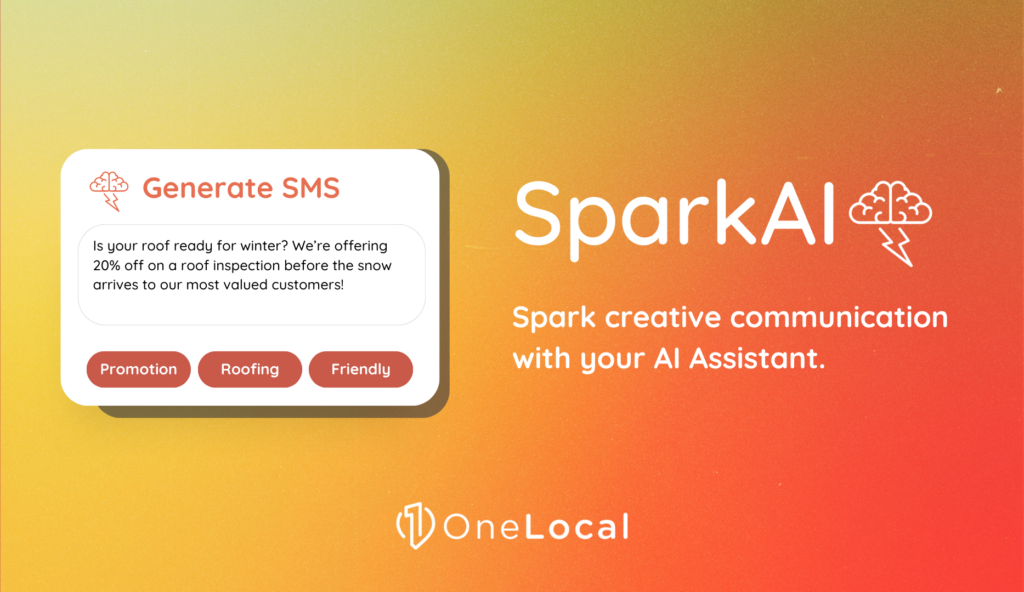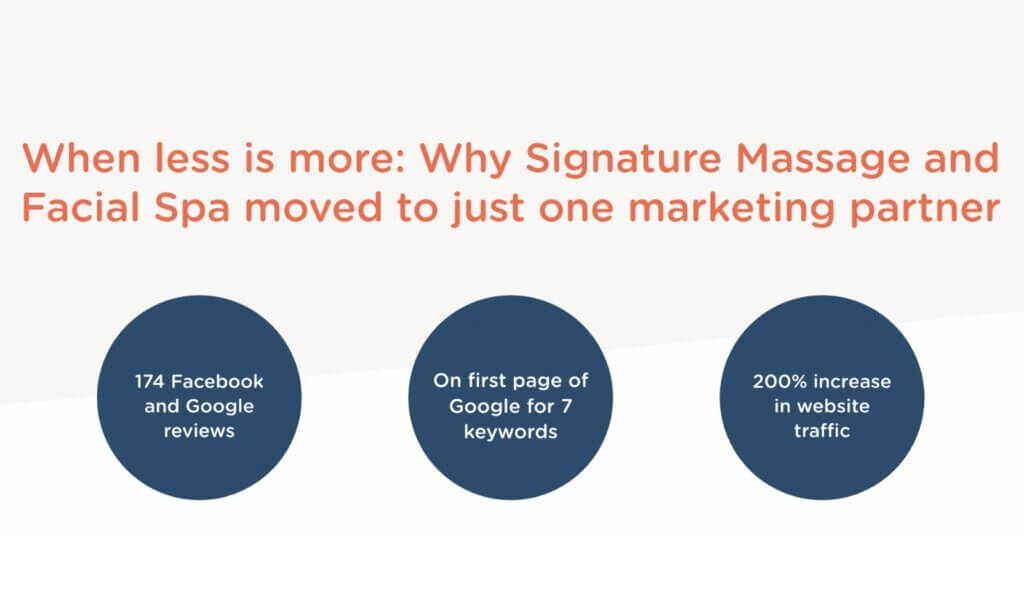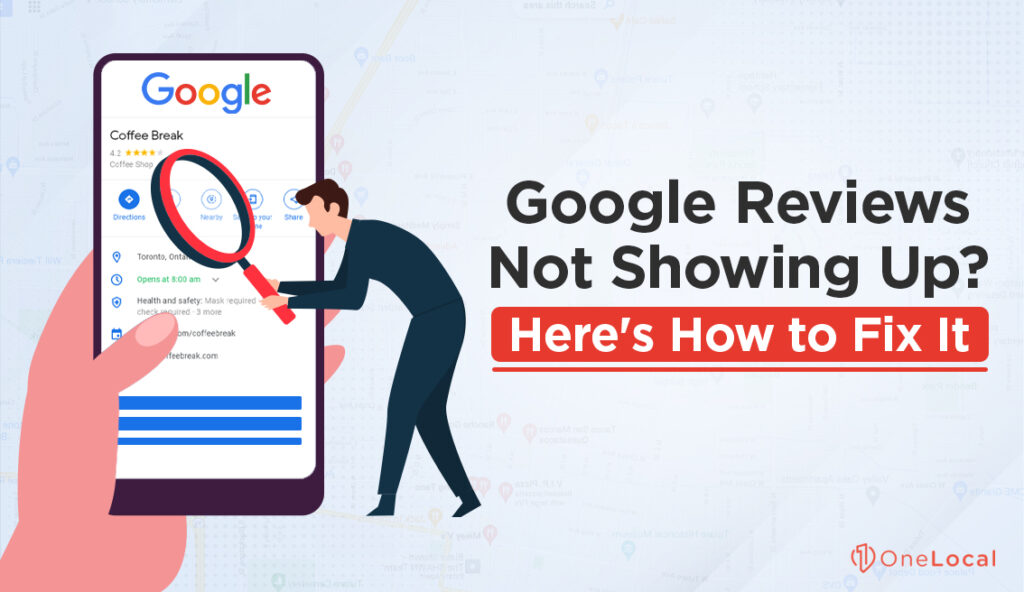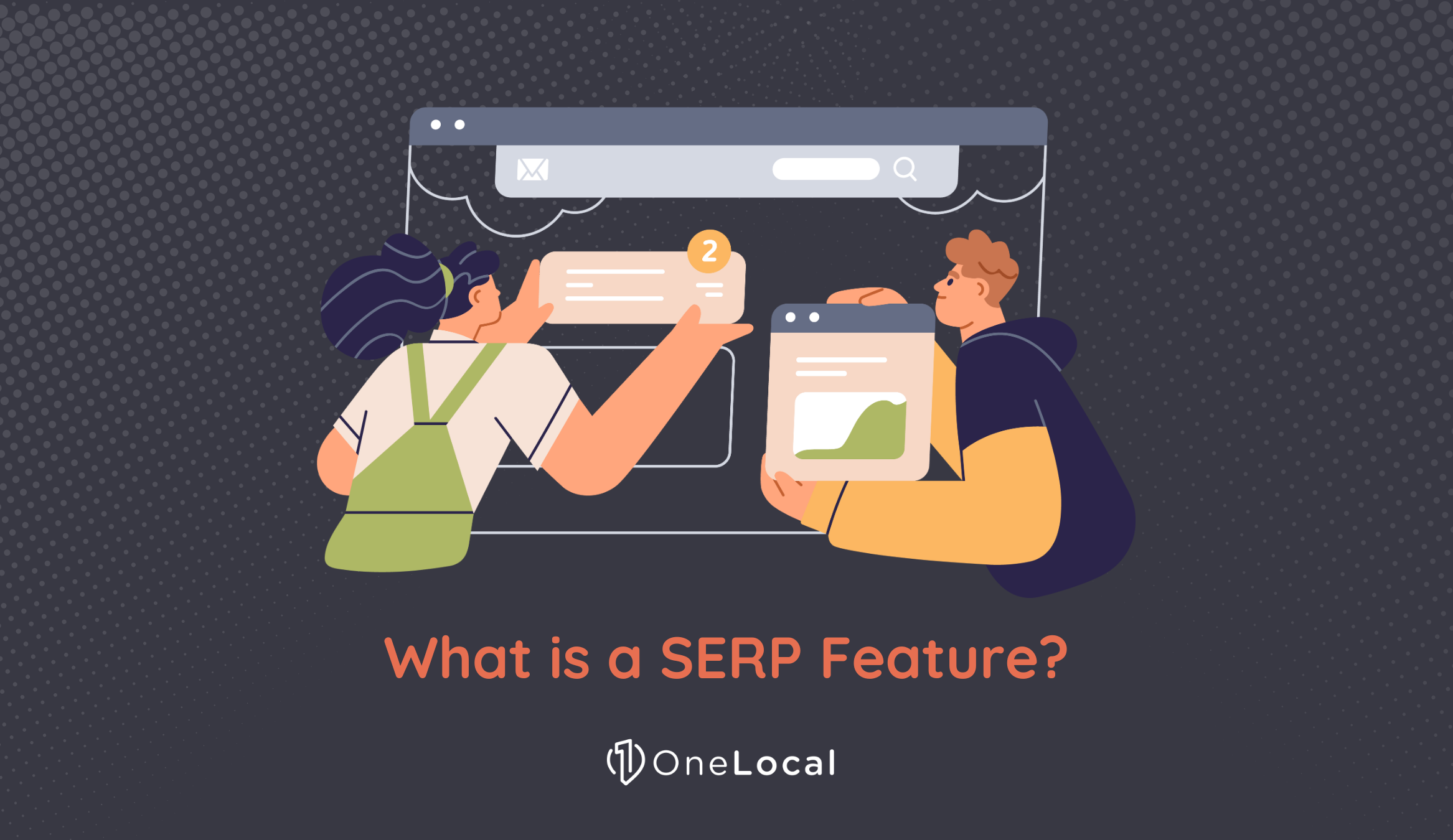Unfortunately, we live in a world where mental healthcare has taken a backseat to physical healthcare. Awareness is growing, study is progressing, but the field is lagging in many ways, including in terms of availability of coverage.
As such, therapists are both a sought-after resource and a competitive field. Rather than being available as part of medical coverage, therapists are often left to fend for themselves with private practices. Not only are you forced to navigate the bureaucracy of dealing with insurance, but you also have to promote and market your practice to find people who are both willing and able to attend therapy.
A considerable part of the success or failure of a private practice comes down to marketing. How well can you locate potential clients? How well can you promote your services (like couple’s therapy, sex therapy, CBT, etc.)? What avenues are available to you to promote your practice? There’s a lot to consider when it comes to website marketing for therapists, and you already have a lot on your plate.
To cut to the chase, marketing is a lot of work. If you don’t have the time or energy to learn it yourself, consider hiring us to handle it for you. All you need to do is drop us a line, and we’ll have a chat about what we can do for you.
If you don’t know where to begin, or want to know what you would need to do for a successful marketing campaign, here’s our guide for website marketing for therapists.
Build a Website
A good, compelling website is the foundation of your entire marketing presence. Without it, it would be like you’re trying to build a business from a closet in a warehouse while everyone else has shiny new offices on the main strip.
Consider the usual ways clients might find you.
- A referral from a friend or family member who is already a client.
- A referral from a physician or healthcare facility you partner with.
- Searching for “therapists near me” on Google and clicking on the links that show up.
It’s that third one that you’re looking to capture here. You want to be one of those sites that shows up. Moreover, you want to be a unique, valuable stand-out site in that crowd.

A relatively common mistake providers make is hiring a local company to build their website. Consider this: that local company has reached out to every therapist in the area and offered website marketing for therapists and to build a site. 99% of the time, they’re using a template to make those sites. You end up with every therapist in the city having a website that looks near-identical, with slightly different colors, logos, or writing.
Most people will notice this right away because when they’re researching a therapist, they’re going to check out multiple possibilities. Every one with a similar website will look worse than the one with a unique website. Stand out!
What does your website need to stand out and be successful? Quite a bit.
A unique and compelling (mobile compatible) design.
We already mentioned how important it is for your site design to stand out. However, being unique is not the only attribute a website needs to be good. Your site also needs a compelling, easy-to-use design, and it needs to be accessible on mobile devices. Over half of all internet usage is conducted via mobile device today, and that number will only grow. You need those people searching on their phones to be able to find you.

Luckily, getting a website set up with a mobile design is not terribly complicated. There are many tutorials for using WordPress to get a basic site set up, and companies like ours will be able to get one up and running in no time.
Separate, individual pages for services you offer.
Perhaps the most important thing you need to understand about Google is that they rank every page on your site individually. They try to find the most narrowly-targeted relevant page to give to people. That’s why, when you search for news, you find specific news stories, not news front pages.
If someone searches for a therapist near them, they’ll find your homepage because your homepage is about a therapist and your location is near them.
What if they want to find a couple’s therapist? If you offer the service, you should have a page dedicated to couple’s therapy. That page will then be the one that shows up when they search. If you offer the service but don’t have a page, Google can’t tell that you offer it, so they can’t recommend you. They still might, but beneath other therapists with sites that mention couple’s therapy.
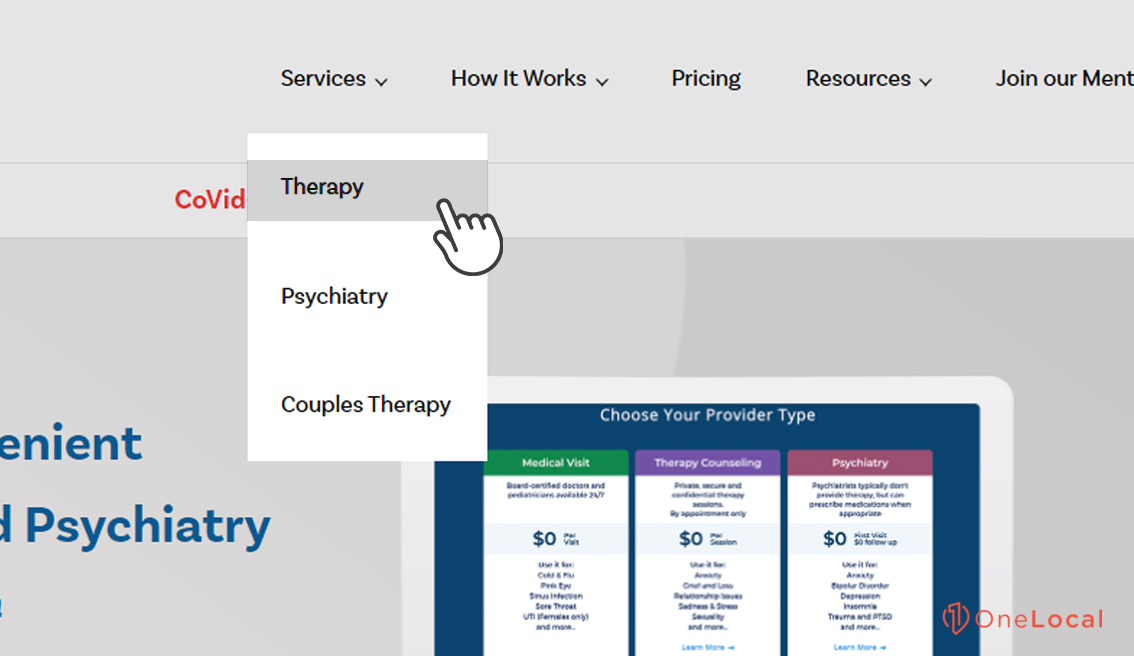
The same goes for every service you offer. These pages should be informative about who you are, your credentials in offering the service, what the service entails, and any key details that might be relevant. For example, some therapists base their treatments in religious doctrine, while others are strictly secular. Some use holistic therapy, some use behavioral therapy, and some use humanistic therapy. These are all meaningful definitions to include.
Your goal when it comes to website marketing for therapists specifically is to consider every service you offer, and create a page for each of them, so that if anyone searches Google for “X service near me,” you show up.
A compelling call to action to attract new clients.
When someone clicks on your site, what do you do to get them to take the next step and contact you?
Time and again, we’ve found that the best call to action for a therapist is to offer a free consultation.
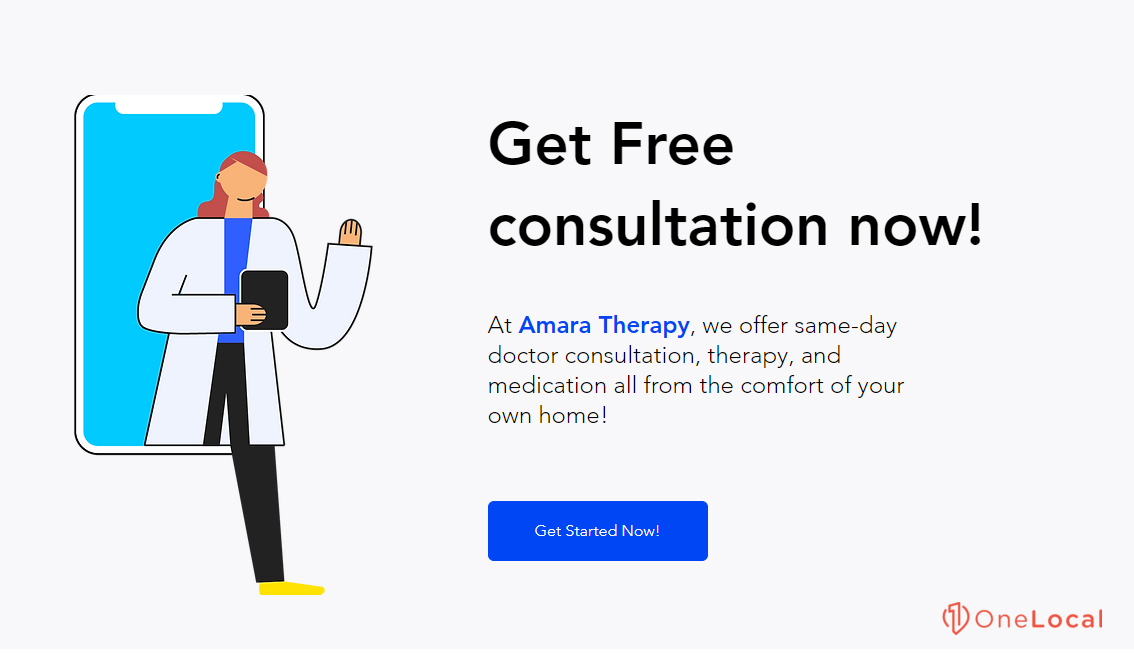
It doesn’t need to be long or in-depth. A free consultation can be a 15-30 minute appointment that, essentially, discusses the individual’s needs and desires and what you can offer to help them, along with enough discussion to get a feel for whether or not you connect as a relationship. After all, a therapist and their client need to be on the same page to be effective, right?
You can try out other calls to action if you prefer. Free eBooks, introductory offers, and other promotions can work, but the free consultation is generally the most effective at drawing in new clients. People, in general, want to try before they commit.
Many ways to reach out and contact you.
If a client finds you and is interested, how do they reach you? Do they need to call your office during business hours to schedule an appointment? Can they send you an email? Do you have a webchat set up? There are many different options around website marketing for therapists, and you should do what you can to support as many of them as possible.
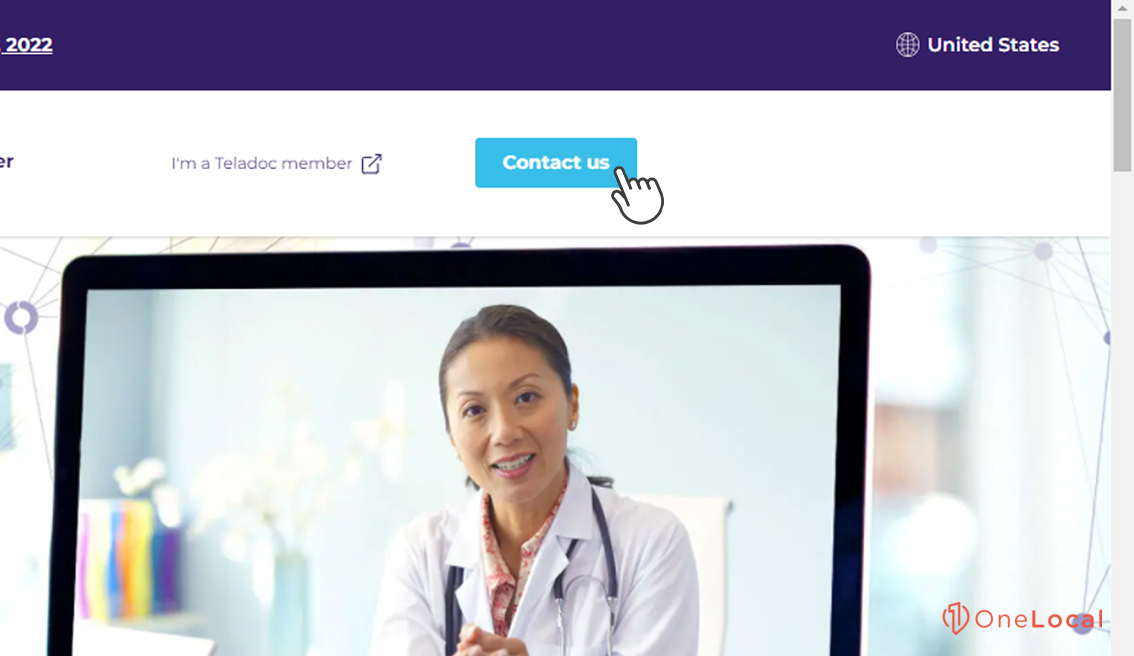
As you likely know, therapy isn’t widely regarded as beneficial and is often stigmatized in certain groups. Individuals who want to seek therapy might need to be covert about it, so offering alternative means of outreach can be beneficial. And, of course, some people may feel more comfortable using particular means of communication over others. More options mean more potential leads.
Liberal use of keywords to attract eyes from Google.
Google runs on keywords. When a user types in something they want to find, Google presents results indexed according to their algorithm, and one of the most important factors in that indexation is the keywords used.

For example, if a person searches for “addiction therapy near me,” many possibilities might come up.
- Therapeutic massage. Since the word “therapy” is likely used on the site, this can show up, but low, because it’s not closely related.
- General cognitive-behavioral therapists. These are the “bulk” sites that will fill up most of the results because they’re potentially-relevant therapists.
- Sites that have pages dedicated to addiction treatment and therapy. These will show up at the top because they have pages that specifically mention the exact phrase the user is looking for.
All of this is complicated by the “near me” portion of the query. Google will filter results geographically and give the nearest therapists who meet the definition first, preferentially over therapists who might meet the definition but are further away.
Once you have all of that down, congratulations! You’re ready to start.
Build a Content Pipeline
Having a website with service pages is the bare minimum necessary to be ranked by Google. If you want to stand out, you need to get into content marketing.
Content marketing generally revolves around a blog. The general pipeline looks like this:
- Come up with a topic your potential clients might be searching for. For example, users might wonder if they have anxiety, so they might search “signs you have anxiety.” If you have a blog post titled “Ten Signs You Might Have Anxiety,” it can come up near the top of the list.
- Do your research and produce the content. Or alternatively, pay someone else to handle the content production for you. Both are effective, and there’s nothing wrong with hiring a ghostwriter or a content production company to handle your blog for you.
- Publish your content. Blogging has a lot of conventions to it, so do your research into what you need to include, like keywords, links, images, and formatting.
- Repeat the process regularly. Typically, one new post per week is good enough.
This is, of course, a simplification. There’s a lot more to content marketing, but the basics of blog production can be enough to get you started. The key is to identify what your clients are looking for and produce content that speaks with authority about those topics.

The goal of this is two-fold. First, it makes your site show up when a user searches for that content. Someone might read your post and think to themselves, “Boy, I sure do meet the definition of a person with anxiety; I wonder if I can get help for that,” and see a button right there offering help for anxiety treatment.
The second goal is to position yourself as an authority and thought leader. When you produce content written with best practices in mind, people can understand that you’re approaching the problem from a place of knowledge and education. They can trust that you’re using modern treatment options, and you’re not just going to write a prescription for Xanax or electro-shock therapy and call it a day.
Build a Presence on Social Media
Another avenue you have available to you for website marketing for therapists is social media.
You’ve probably heard of some of those famous online therapists who run TikTok profiles, Instagram accounts, or Facebook pages. They constantly produce micro-content talking about anecdotes or specific issues, giving small bite-size pieces of advice, or generally just positioning themselves as a popular authority.
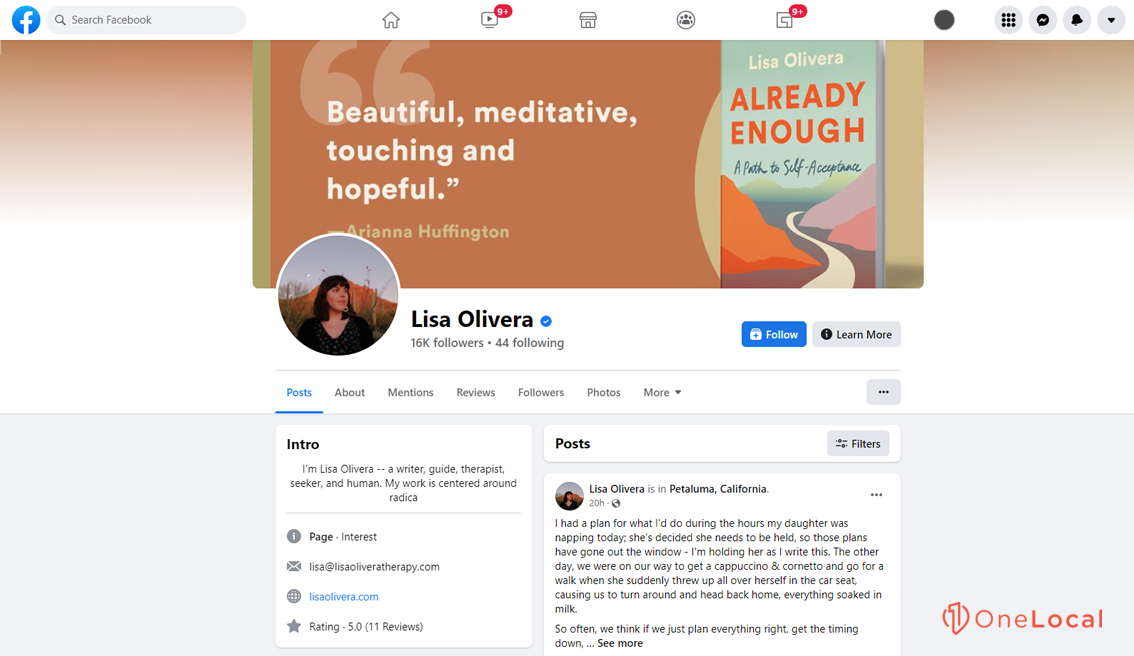
You can do this too! After all, you have the education. Simple camera phone videos on TikTok or Instagram don’t take much effort to create. Build a following with general tips, and people who are in your area may be able to look you up and become clients.
Pay Someone to Handle It All For You
The truth is, everything we’ve written above is just scratching the surface when it comes to website marketing for therapists. Every sentence is a whole topic that people might specialize in, and we didn’t even mention avenues of traffic generation, lead conversion, metric monitoring, analytics, or other means of self-promotion.
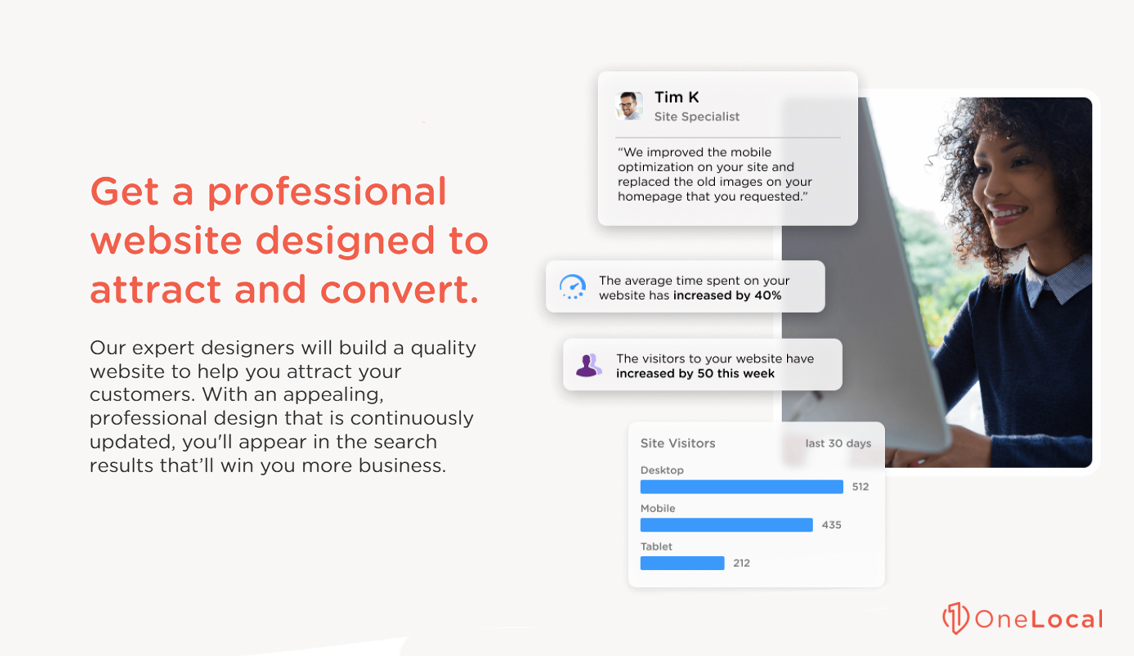
We recognize that you probably don’t have the time or energy available to dig into doing all of this yourself. You may, completely reasonably, want to pay someone to handle it for you. That’s where we come in. We’re specialists in building local sites, promoting local businesses, enhancing local referrals, building local reviews, and much more. We can handle building and growing your therapy practice; all you need to do is reach out and give us a call.
Do you have any questions about website marketing for therapists, what you can do to improve your website, or anything similar? If so, please feel free to reach out and contact us at any time! Website marketing for therapists can be a bit of a challenge, especially when starting it for the first time, so we would be more than happy to assist you with that however we possibly can.

Rachel Solway is a seasoned marketing professional dedicated to empowering small businesses through innovative marketing strategies. With extensive experience at OneLocal, a leading marketing solutions provider, Rachel’s insights are helping thousands of local businesses navigate the digital landscape.

